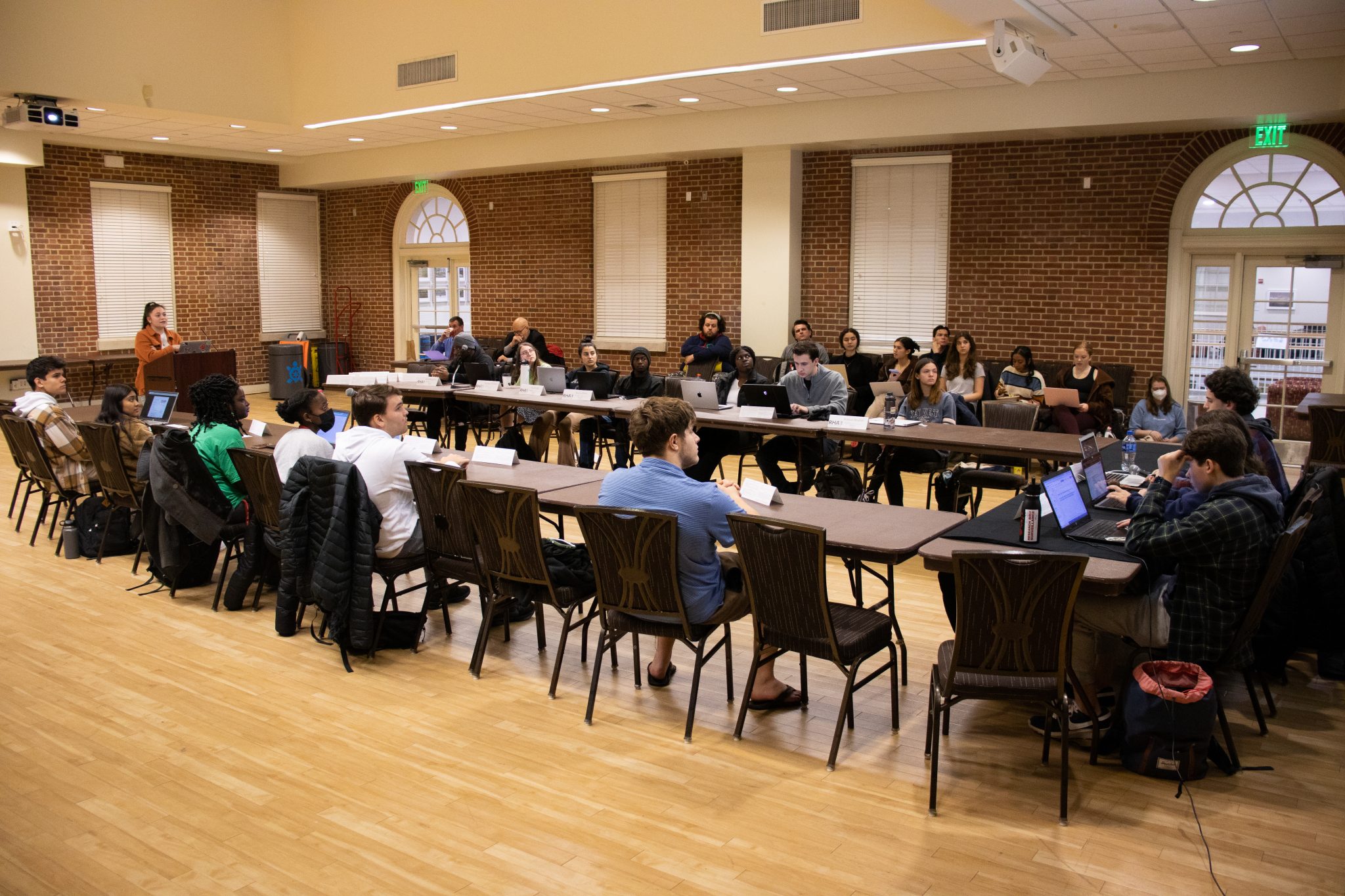From advocating for the installation of menstrual product dispensers in residence hall bathrooms to co-hosting a halal town hall, the University of Maryland RHA passed 13 bills and spearheaded multiple events this academic year.
“I think RHA had a really productive year,” said sophomore government and politics major Erika Holdren, the newly inaugurated president of RHA. “We had a lot of impactful legislation that passed and we held a lot of events that helped educate the campus and bring awareness to different resources the university offers.”
Many student organizations struggled with member retention after the COVID-19 pandemic, but the Resident Hall Association bounced back, according to junior government and politics major Scott Cronin, who served as the RHA president this academic year.
The RHA started by passing a bill in October to assist TerpsVote, an initiative that promotes voting at the university, in hosting a watch party for the Maryland gubernatorial debate.
Another bill passed in October supported this university’s residential facilities department’s initiative to install menstrual hygiene product dispensers in all residence halls. More than 400 dispensers were slated to be installed in academic buildings by the end of February.
[UMD students voice concerns about on-campus room selection process]
The RHA hopes to expand the initiative to South Campus Commons and Courtyards, junior government and politics major and RHA programming and community development coordinator Livi Carey said after the bill passed.
In November, the RHA also passed a bill urging the university to make Election Day a campus holiday for all future semesters. The bill argued that class and work obligations prevent students from voting. As of May, the university has not taken action on this recommendation.
The RHA passed another bill in November to support providing a late-night dining option for students enrolled in the Freshmen Connection program. Cronin hopes this initiative will go into effect this fall. Some students in Freshmen Connection have class until 9 p.m. and may not have time to go to the dining hall before it closes, Cronin said. The bill proposed that dining halls stay open later for these students.
“We began with Freshmen Connection students because … they are exhibiting the most need and most urgent need right now,” junior government and politics major and former RHA vice president Aiden Wechsler said after the bill passed. “I think once we work on a solution for Freshman Connection students, where that will lead into the future, who knows?”
[Sophomore Erika Holdren elected as next UMD RHA president]
Two bills passed in late November also support increases to residential housing and student meal plan fees for the next fiscal year. The rate would increase 4.16 percent for a traditional double room with air conditioning and would increase 8.81 percent for a resident student meal plan. The increase would total $841 annually per student.
The $3.3 million in revenue generated by the increase for residence halls would address “unavoidable” board costs, according to one of the resolutions. Some students criticized the increase and think the university should improve the quality of the dorms along with this increase.
In February, the RHA also co-hosted a town hall meeting with the university’s Muslim Student Association to discuss halal options offered in the dining halls. Dining Services members attended the meeting to address a proposal that could streamline halal into a serving platform at 251 North.
The RHA also passed several bills in the spring semester to promote student support and sustainability on campus. One of these bills supported using recycled copy paper for hall council advertising. Another bill was intended to bolster students’ awareness of academic resources offered by the university.
“We’ve done a lot of really amazing advocacy this year in a lot of different spaces,” Cronin said.



